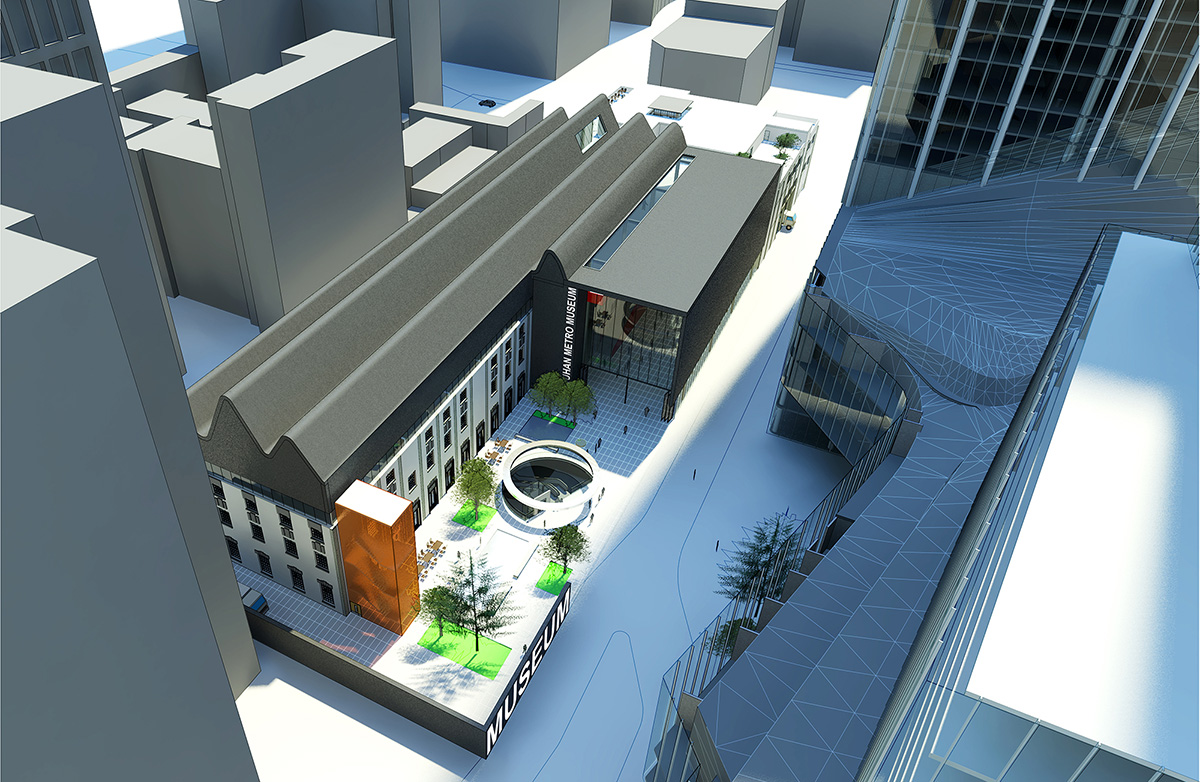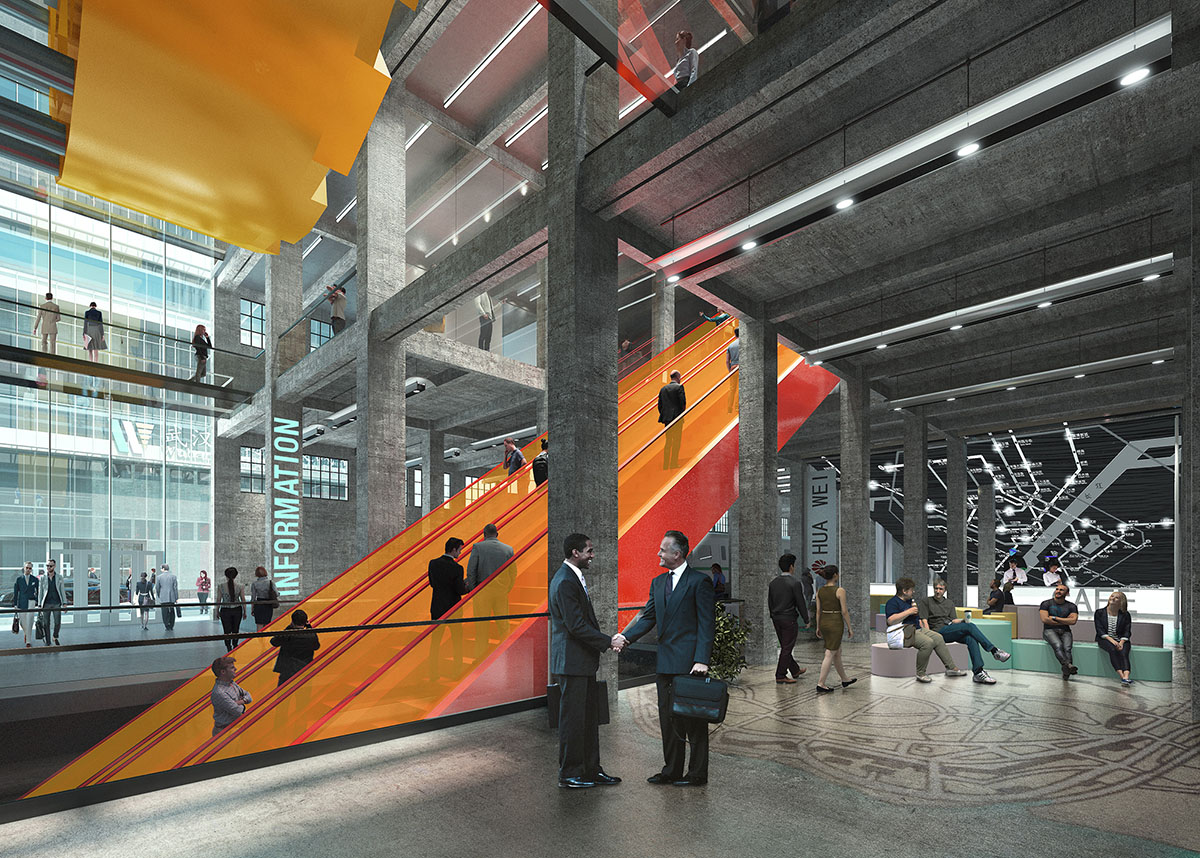Submitted by WA Contents
GreenbergFarrow wins international competition to design Wuhan Metro Museum
China Architecture News - Sep 29, 2017 - 12:30 14656 views

US-based multi-disciplinary firm GreenbergFarrow has won an international competition to design new museum in Wuhan, China - the most populous city in central China that serves as the capital of the Hubei province. Selected from among five other international and local design organisations, the Wuhan Metro Museum combines innovative design features by integrating an economically sound business model into the museum.
The 150,000-square-foot (approximately 14,000-square-metre) Metro Museum will feature two 100-year-old German warehouses and 75,000 square feet (7,000-square-metre) of the site will be designed as the Metro Museum, and 64,000 square feet (6,000-square-metre) space will be used for commercial facilities including restaurants, a café and gift shop.

The museum is developed as a key part of the area’s broader redevelopment of Wuhan’s historical concession district of Hankou, where two office towers are under development next to the site.
The museum's interiors create a deep contrast with dark concrete walls, floors, galleries and orange-coloured circulation routes, which direct visitors easily to other separated volumes.

"Our vision was to seamlessly integrate art and commercial space to activate and engage the people of the city, as well as local businesses and organisations," said James Lew, Architecture Design Director of GreenbergFarrow’s Shanghai office.
The studio is working with museum researcher Jonathan Hale, a professor at the University of Nottingham, to analyze a series of museum circulations to manifest a clear and concise space layout and circulation direction of flow that will stimulate and excite a sense of discovery, while also feeling natural and logical for visitors to follow. Wei Chen, a structural engineer consultant with Schlaich Bergermann Partner, will be working on the project's structural development.

"As architects, we were excited by the challenge to create a unique space that takes the common daily occurrence of subway travel and elevates it into works of art that celebrate how a city works," said Scott Loikits, Principal and Global Design Director for GreenbergFarrow.
"Visitors are taken on an immersive journey as they enter the museum. One of the entrances lies inside the Line 7 Metro Station underground. Grand escalators will bring visitors all the way to the top of the four-level museum, giving them an opportunity to view the beauty of each floor through incased glass as they ascend," said GreenbergFarrow
"A tunnel-boring machine (TBM), used to excavate metro tunnels, serves as the museum’s focal point; it extends two floors and is visible through the floor-to-ceiling windows outside of the building. A circular ramp surrounds the TBM, giving visitors an up-close experience with its various parts," added the studio.

The Metro Museum will feature a Visitor’s Center situated at the museum’s top level. Visitors will be able to view the museum's cabinet of curiosities (or small collections of objects) as they descend an atria spiral staircase from the fourth level to the ground level.
Public space and social areas are created through restaurants and a sculpture garden on the ground level. An auditorium with the flexibility to isolate internal parts of the museum, or expand for big events, is also located on the ground level. The auditorium includes colourful seats with high ceiling and curtain-like divisions create sincere atmosphere inside which will also visible from the galleries.
"Our goal was to optimize the space to function as both a place of curiosity and socialization, with multiple revenue streams for the museum. Generating revenue beyond the admission fee is critical to the fiscal health of museums today," said Rodney Abney, Principal of GreenbergFarrow.
Several Metro Museums have emerged across China in recent years - this will be the largest and most comprehensive to date. The museum is a philanthropic collaboration between Wuhan Metro Group and the Chinese government to create a cultural building.
The project is expected to cost $40.8 million and is scheduled to open in September 2019.
All images © GreenbergFarrow
> via GreenbergFarrow
